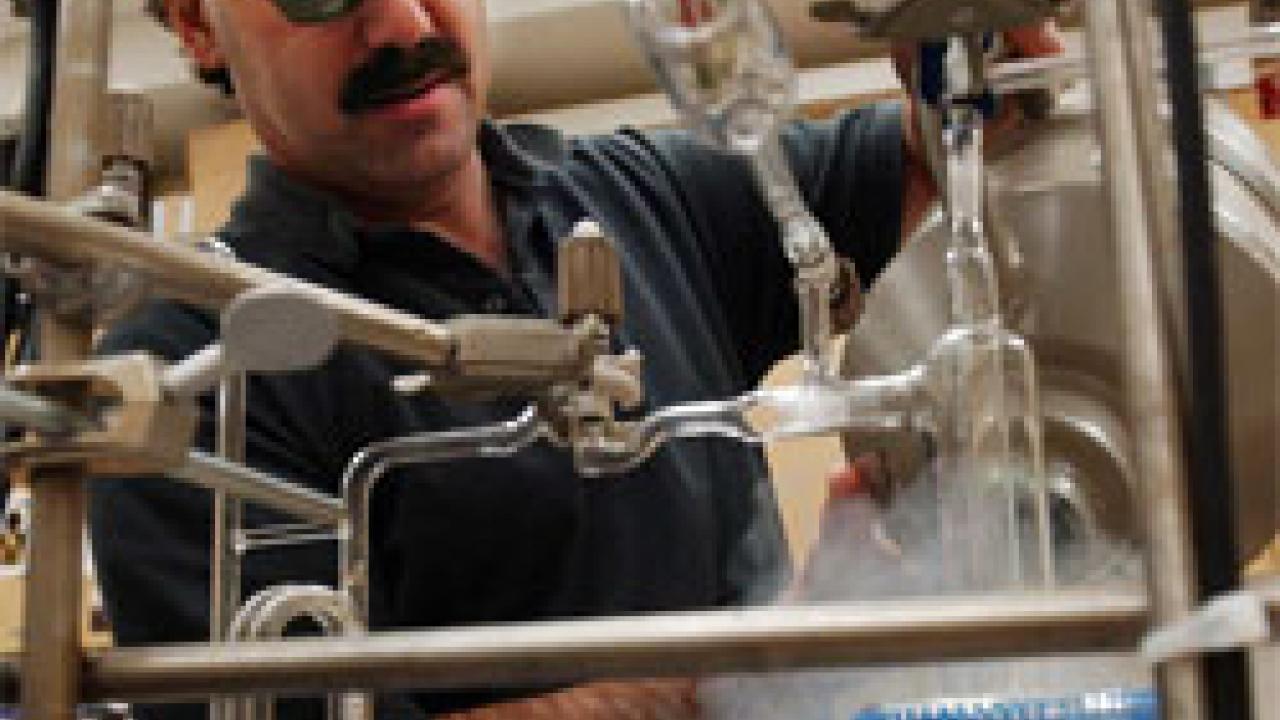Is global warming the new scientific apocalypse?
UC Davis paleoceanographer Howard Spero says that climate changes haven't come gradually to Mother Earth in the past. Today, as carbon dioxide levels begin to rise and the greenhouse effect increases, we're playing a high-stakes poker game with the environment.
"Our climate system can do very strange things," says Spero, an expert on reconstructing Earth's climate using chemical analyses of fossil seashells. "Stability in our climate system is good for life. Instability is dangerous because it hurts someone somewhere even if it helps create a better climate in other places."
The global climate system has been remarkably stable since the rise of human civilization about 8,000 years ago, Spero says. By contrast, during the preceding 100,000 years, climate underwent frequent and often abrupt shifts.
Nothing, however, is a guarantee when talking long-term weather forecasting, though most scientists agree that greenhouse gases from fossil fuels have contributed to the warming of the planet. As Spero noted, the carbon dioxide levels on Earth are as high as they've been in the past 2 million years.
Are we facing the apocalypse of an 'abrupt shift'?
"The Earth's climate system can jump from one of these modes -- warm or cold -- to another in a matter of a few decades to a century or two," he said. "Then again, it may all proceed smoothly."
While so much is unknown, a few facts are emerging. Recently scientists pulled up ice-core samples with air bubbles from underneath Greenland that revealed what the Earth's atmosphere was like over a period of 100,000 years. The sample showed that at one point, in as little as 10 years, the global climate had drastically changed.
The concern among scientists like Spero is that this "heating up" of Earth will cause large-scale changes -- for example, the melting of the polar ice caps. A recent study of his in Nature reinforces concerns that global warming, by melting the glacial ice of Greenland, could quickly and profoundly change climate-affecting factors in the north Atlantic Ocean.
One thing to keep in mind, Spero says, is that when we hear in the news that ice caps are melting, those reports are referring to "sea ice," not the "continental ice." The risk is that the "sea ice" melting might be a precursor to the melting of the all-important continental ice.
"There's no clear evidence that the continental ice caps are collapsing right now," said Spero. "But this is like running a 20- to 40-year lab experiment -- these events may unfold over long periods of time."
He noted that our atmospheric and oceanic systems are deeply connected to each other. "Phenomena such as global warming can affect ocean circulation and nudge the system toward a threshold that could produce an abrupt climatic change."
It's possible that late in the next century, he says, the carbon dioxide content of our atmosphere will reach 500-600 parts per million, twice the pre-industrial level.
If it happens, scientists like Spero say that global warming is likely to increase the number of hungry people in the world. The problem is, by the middle of the next century, Earth's population will increase to between 10 and 15 billion, and the demand for energy will rise.
The impact of climate change on food production could result in lower yields of cereal grains in the tropics, areas already under water stress. Extreme weather also causes floods and droughts, the latter of which lead to forest fires. And this is just for starters.
What would help avoid this kind of apocalypse?
"The Earth will adapt and in this sense be all right, but the question is how these changes affect life and human civilizations on the planet," says Spero, adding that more science needs to be done to fully understand all the ramifications. Also, he adds, an alternate energy source needs to be developed that is socially acceptable and economically fundable.
Media Resources
Clifton B. Parker, Dateline, (530) 752-1932, cparker@ucdavis.edu
